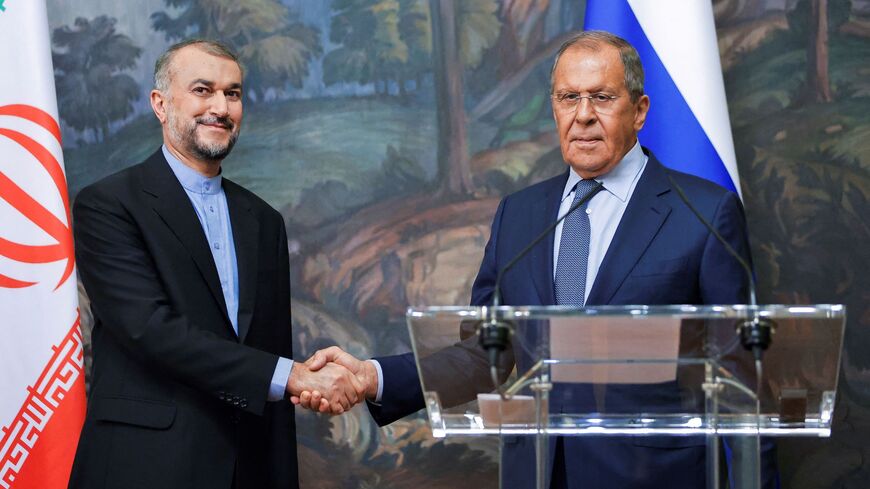TEHRAN — Iran's Foreign Minister Hossein Amir-Abdollahian traveled to Moscow on Tuesday to attend a four-way meeting with his Syrian, Turkish and Russian counterparts in a summit hosted by the Kremlin.
Prior to the Iranian minister's departure, the spokesman for the country's Foreign Ministry, Nasser Kanaani, told reporters in Tehran that the Iranian side is pushing to "bridge differences" between Syria and Turkey and help cement peace and stability in the region.
The four-way meeting is expected to focus on tensions between Syria and Turkey. Ankara has frequently threatened to launch a ground incursion into Syria's north, where control of swaths of territory by Kurdish fighters has unsettled the Turkish government. Such relative autonomy, Turkey fears, would pose a menace to its security if not inspire its marginalized Kurdish minority.
"We understand Turkey's security concerns in Syria," Kanaani said, according to the semi-official Fars News Agency. He noted, however, that Ankara's worries could be alleviated with dialogue rather than a military solution.
With its own sizable Kurdish minority, Iran shares, to some degree, Turkey's concerns about Kurdish control in Syria. Yet on most other issues throughout the decadelong Syrian civil war, Ankara and Tehran have rarely seen eye to eye. Amid the clashing interests, the Islamic Republic has gone out of its way to shore up the government of its ally, Bashar al-Assad, with a controversial military presence there, which Tehran insists is merely for advisory purposes and of the Syrian government's volition.
In the latest from such support, Defense Minister Mohammad Reza Ashtiani declared Tehran's readiness to equip the Syrian army with "the most advanced of Iranian indigenously developed weaponry."
The pledge coincided with a recent uptick of Israeli strikes pounding Iran-linked military bases and positions inside Syria.
Ashtiani told his Syrian counterpart in Damascus that the Islamic Republic was even willing to launch production lines of air defense and ground equipment as well as electronic warfare.
For the promise to be fulfilled, Iran appeared to have fewer obstacles to clear from its path thanks to the expiry in October 2020 of a UN Security Council embargo that had tied Iran's hands in imports and exports of weaponry.







